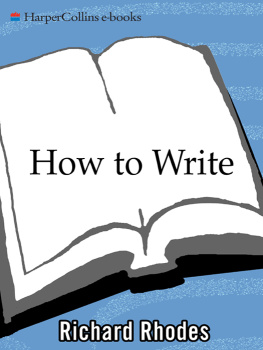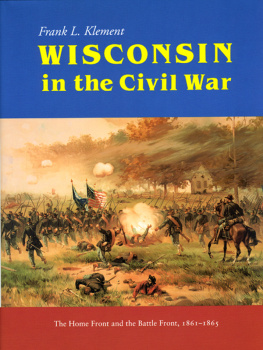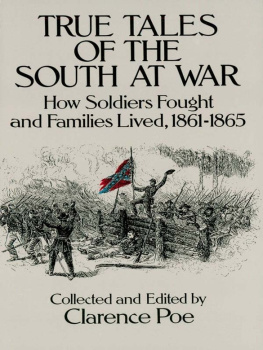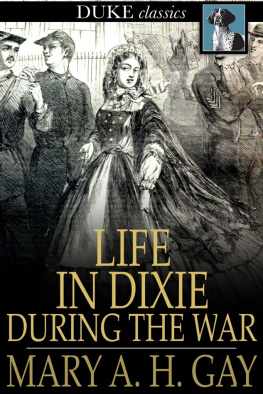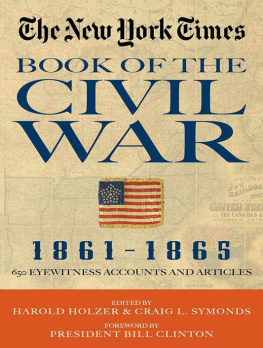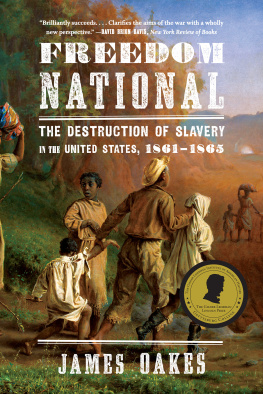Rhodes - History of the Civil War, 1861-1865
Here you can read online Rhodes - History of the Civil War, 1861-1865 full text of the book (entire story) in english for free. Download pdf and epub, get meaning, cover and reviews about this ebook. year: 2016, publisher: Reservoir House, genre: History. Description of the work, (preface) as well as reviews are available. Best literature library LitArk.com created for fans of good reading and offers a wide selection of genres:
Romance novel
Science fiction
Adventure
Detective
Science
History
Home and family
Prose
Art
Politics
Computer
Non-fiction
Religion
Business
Children
Humor
Choose a favorite category and find really read worthwhile books. Enjoy immersion in the world of imagination, feel the emotions of the characters or learn something new for yourself, make an fascinating discovery.
- Book:History of the Civil War, 1861-1865
- Author:
- Publisher:Reservoir House
- Genre:
- Year:2016
- Rating:5 / 5
- Favourites:Add to favourites
- Your mark:
- 100
- 1
- 2
- 3
- 4
- 5
History of the Civil War, 1861-1865: summary, description and annotation
We offer to read an annotation, description, summary or preface (depends on what the author of the book "History of the Civil War, 1861-1865" wrote himself). If you haven't found the necessary information about the book — write in the comments, we will try to find it.
Rhodes: author's other books
Who wrote History of the Civil War, 1861-1865? Find out the surname, the name of the author of the book and a list of all author's works by series.
History of the Civil War, 1861-1865 — read online for free the complete book (whole text) full work
Below is the text of the book, divided by pages. System saving the place of the last page read, allows you to conveniently read the book "History of the Civil War, 1861-1865" online for free, without having to search again every time where you left off. Put a bookmark, and you can go to the page where you finished reading at any time.
Font size:
Interval:
Bookmark:
A History of the Civil War, 1861-1865
James Ford Rhodes
Winner of the Pulitzer Prize in History in 1918
First published by The MacMillan Company in 1917.
Copyright James Ford Rhodes.
This edition published in 2016.
Table of Contents
Chapter I
THE GREAT factor in the destruction of slavery was the election of Abraham Lincoln as President in 1860
Meanwhile the United States Senate, through an able and representative committee of thirteen, was at work on a compromise in the spirit of earlier days. In 1820, according to Jefferson, the knell of the Union had been rung; the slavery question, said he, like a fire-bell in the night awakened and filled me with terror. But then the Missouri Compromise had saved the Union.
Between January 9 and February 1, 1861, the conventions of Mississippi, Florida, Alabama, Georgia, Louisiana and Texas passed ordinances of secession. Early in February the Confederate States was formed. Delegates from six cotton States
When Lincoln was inaugurated President on March 4, he confronted a difficult situation. Elected by a Union of thirty-three States, he had lost, before performing an official act, the allegiance of seven. Believing that no State can in any way lawfully get out of the Union without the consent of the others and that it is the duty of the President to run the machine as it is, he had to determine on a line of policy toward the States that had constituted themselves the Southern Confederacy. But any such policy was certain to be complicated by the desirability of retaining in the Union the border slave States of Maryland, Virginia, Kentucky and Missouri, as well as North Carolina, Tennessee and Arkansas, whose affiliations were close with the four border States. All seven were drawn towards the North by their affection for the Union and towards the South by the community of interest in the social system of slavery. One of Lincolns problems then was to make the love for the Union outweigh the sympathy with the slaveholding States that had seceded.
It is difficult to see how he could have bettered the policy to which he gave the keynote in his inaugural address. I hold, he said, that the union of these States is perpetual. Physically speaking we cannot separate. The power confided to me will be used to hold, occupy and possess the property and places belonging to the Government. This last declaration, though inevitable for a President in his position, outweighed all his words of conciliation and rendered of no avail his closing pathetic appeal to his dissatisfied fellow countrymen not to bring civil war on the country.
During the progress of the secession, the forts, arsenals, custom-houses and other property of the Federal government within the limits of the cotton States were taken possession of by these States and, in due time, all this property was turned over to the Southern Confederacy, so that on March 4, all that Lincoln controlled was four military posts, of which Fort Sumter, commanding Charleston, was much the most important. he did not demand the Secretarys resignation; he had for him no word of sarcasm or reproach.
The President submitted to another drain on his time and strength in the persistent scramble for office. The grounds, halls, stairways, closets of the White House, wrote Seward, are filled with office seekers; and Lincoln said, I seem like one sitting in a palace assigning apartments to importunate applicants, while the structure is on fire and likely soon to perish in ashes. When he ought to have been able to concentrate his mind on the proper attitude to the seceding States, he was hampered by the ceaseless demands for a lucrative recognition from his supporters and by the irrational proposals of the chief of his Cabinet.
The great problem now was Sumter. What should be done about it? On the day after his inauguration, the President was informed that Anderson believed a re-enforcement of 20,000 men necessary for the defence of the post;
In the final decision, the sentiment of the North had to be taken into account. To abandon Sumter would seem to indicate that a peaceful separation would follow; that the principle of the sovereignty of the States and secession had triumphed. Finally, with increasing support in his Cabinet, Lincoln came to a wise decision. Re-enforcement from a military point of view was impracticable; to reach the fort the North might have to fire the first shot. But, as a political measure, he decided to send bread to Anderson, he sent word to the Governor of South Carolina of his intention. Beauregard, commander of the Confederate troops at Charleston, who in company with the Governor heard the formal notification, telegraphed it to the Confederate Secretary of War at Montgomery, receiving two days later [April 10] the order to demand the evacuation of Fort Sumter and, if this was refused, to proceed to reduce it.
The demand was made; and when Anderson had written his refusal to comply with it he observed to the Confederate aides, the bearers of Beauregards note, If you do not batter the fort to pieces about us, we shall be starved out in a few days.
The bombardment was unnecessary. Sumter might have been had without it. Beauregard was needlessly alarmed over the relief expedition that was bringing bread to Anderson. He feared a descent upon the South Carolina coast by the United States fleet then lying at the entrance of the harbor for the supposed purpose of re-enforcing Fort Sumter. One of his aides reported that four large steamers are plainly in view standing off the bar. The people in Charleston thought that there were six men-of-war in the offing. the most important of the war-ships and the one carrying the equipment necessary for the undertaking, nothing could be accomplished, and no attempt was made to provision the fort. Administrative inefficiency, Sewards meddlesomeness and a heavy storm at sea conjoined to cause the failure of the expedition. Fox and his companions watched the bombardment, chafing at their powerlessness to render their brothers-in-arms any assistance.
Before leaving Sumter Beauregards aides notified Anderson in writing that in an hour their batteries would open on the fort. Anderson and his officers went through the casemates where the men were sleeping, waked them, told them of the impending attack and of his decision not to return the fire until after daylight. The first shell was from Fort Johnson; at half past four, it rose high in air and curving in its course burst almost directly over the fort. For the people of Charleston who gathered on the house-tops and thronged to the wharves and to their favorite promenade, the Battery, this artillery duel was a mighty spectacle. They had lost all love for the Union; they hated the American flag somewhat as the Venetians hated the Austrian and, though apprehensive of danger to their husbands, sons and brothers, they rejoiced that the time was drawing near when the enemy should no longer hold a fort commanding their harbor and city.
In the early afternoon the fire of Sumter slackened; cartridges were lacking, although the six needles in the fort were kept steadily employed until all the extra clothing of the companies, all coarse paper and extra hospital sheets had been used.
In this momentous battle, no man on either side was killed. As compared with the military writing of two years later, the crudity of the contemporary correspondence and reports is grimly significant. They told of the work of boys learning the rudiments of war boys who would soon be seasoned veterans wise in the methods of destruction. A strenuous schooling this; and the beginning of it was the artillery duel in Charleston harbor.
Beauregards aides assumed too great a responsibility in giving the order to fire the first shot; they should have referred Andersons reply to their chief. There can be no doubt that the Confederate States would have obtained peacefully on Monday what they got by force on Sunday. If Beauregard had had Andersons last response, he would unquestionably have waited to ask Montgomery for further instructions. The presence of the United States fleet was of course disquieting; yet the danger from this source, even as exaggerated in Beauregards mind, could be averted quite as well by acting on the defensive, as by the bombardment of Fort Sumter. But South Carolina was hot for possession of the fort and the aides who gave the order that precipitated hostilities were swayed by the passion of the moment.
Next pageFont size:
Interval:
Bookmark:
Similar books «History of the Civil War, 1861-1865»
Look at similar books to History of the Civil War, 1861-1865. We have selected literature similar in name and meaning in the hope of providing readers with more options to find new, interesting, not yet read works.
Discussion, reviews of the book History of the Civil War, 1861-1865 and just readers' own opinions. Leave your comments, write what you think about the work, its meaning or the main characters. Specify what exactly you liked and what you didn't like, and why you think so.


